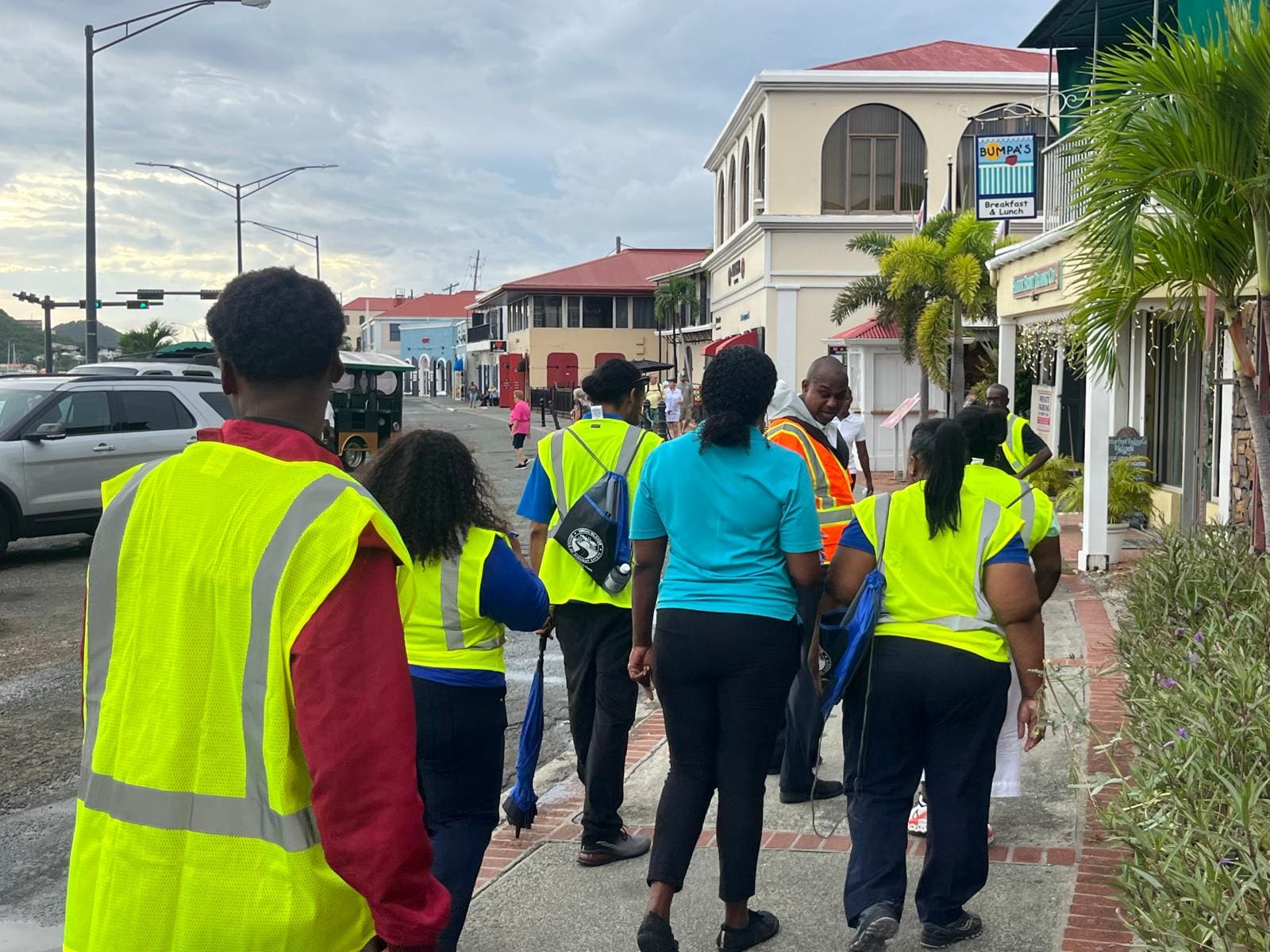
The Virgin Islands Police Department’s Office of Highway Safety (VIOHS) conducted an afternoon walking safety assessment on Tuesday in downtown Charlotte Amalie, allowing participants a chance to share their feedback on the pedestrian experience traversing the roadways.
According to the department, the goal of the walking assessment is to make safe walking and biking a reality for all residents and visitors regardless of age, income, or ability. Responses from participants who attended the safety walk will be used to provide countermeasures that can aid in reducing accidents, especially on the St. Thomas waterfront.
Veterans Drive “is very dangerous,” said VIOHS Director Daphne O’Neal. “We have a lot of motorists and pedestrians that use it so we want to do a good job of assessing it,” she added about the walking safety assessment.
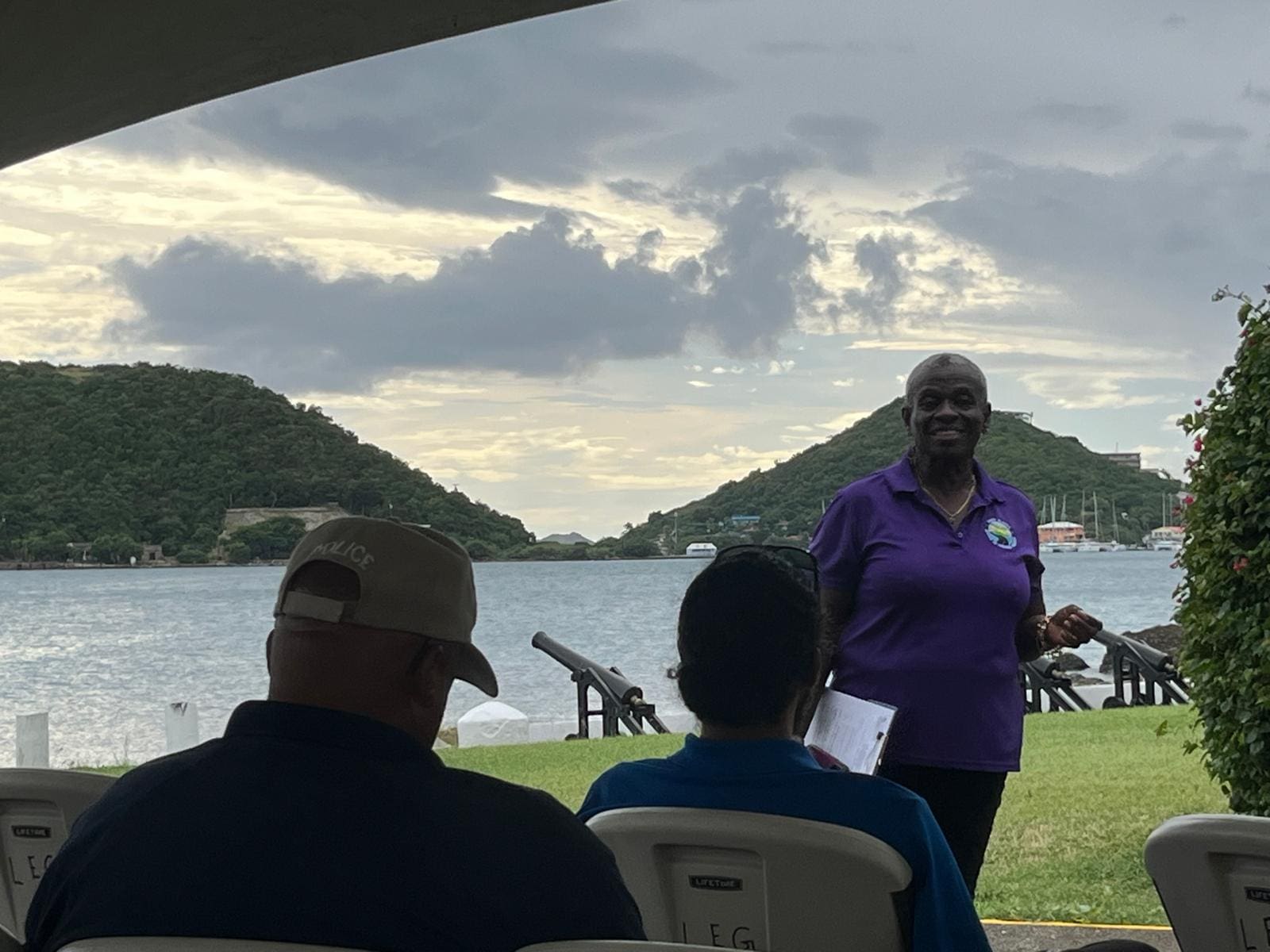
Before beginning the walking tour, members from VIOHS briefed attendees on the purpose of the activity, addressing accessibility and safety concerns as priority areas to pay attention to during the walk. Participants included members from the Public Works Department, the Disability Rights Center, the Health Department and Emergency Medical Services, the Bureau of Motor Vehicles, Meeting The Needs Of Our Community (formerly Methodist Training and Outreach Center), and members from the executive and legislative branches. About 25 participants were provided with fluorescent yellow vests to wear and split into three groups before traversing the roadways. The walking assessment began at the Legislature Building where participants cautiously and attentively headed westward, facing opposite traffic, towards the Edward Blyden IV Marine Terminal, taking note of their observations before heading back to the Legislature Building.
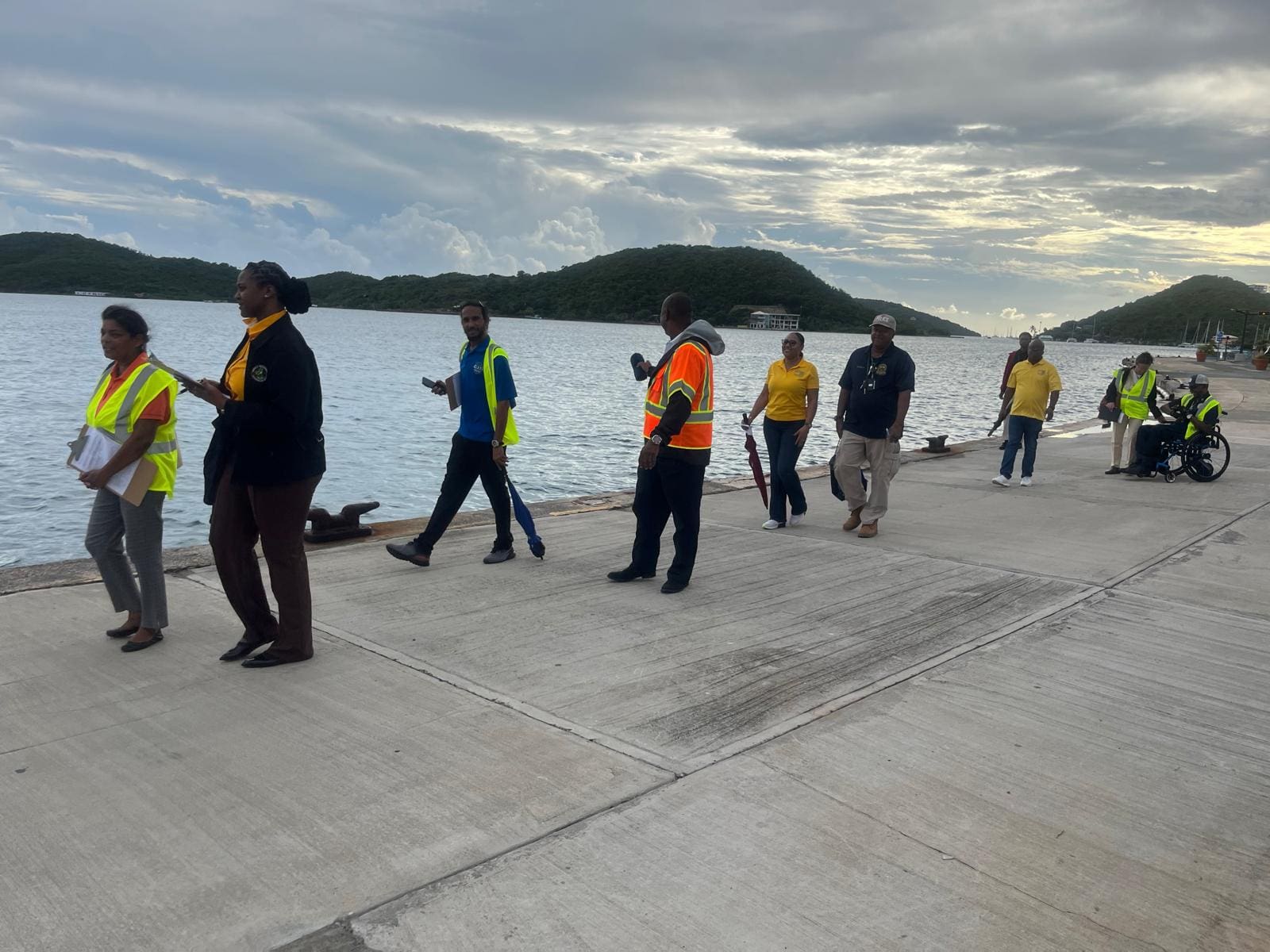
“The groups should be approaching this as a collaborative effort,” said Denise Gomes, assistant director for VIOHS. She added that the walk will be “telling people how they can be safer on the roadways.”
Gomes gave an example of an observation she had previously where she saw a school bus letting children exit at a bus stop. She said that though the stop arm was out, vehicles on the other side of the road heading in the opposite direction of the bus were still driving.
“We need to educate the community on what to do when you see a stop arm,” said Gomes.
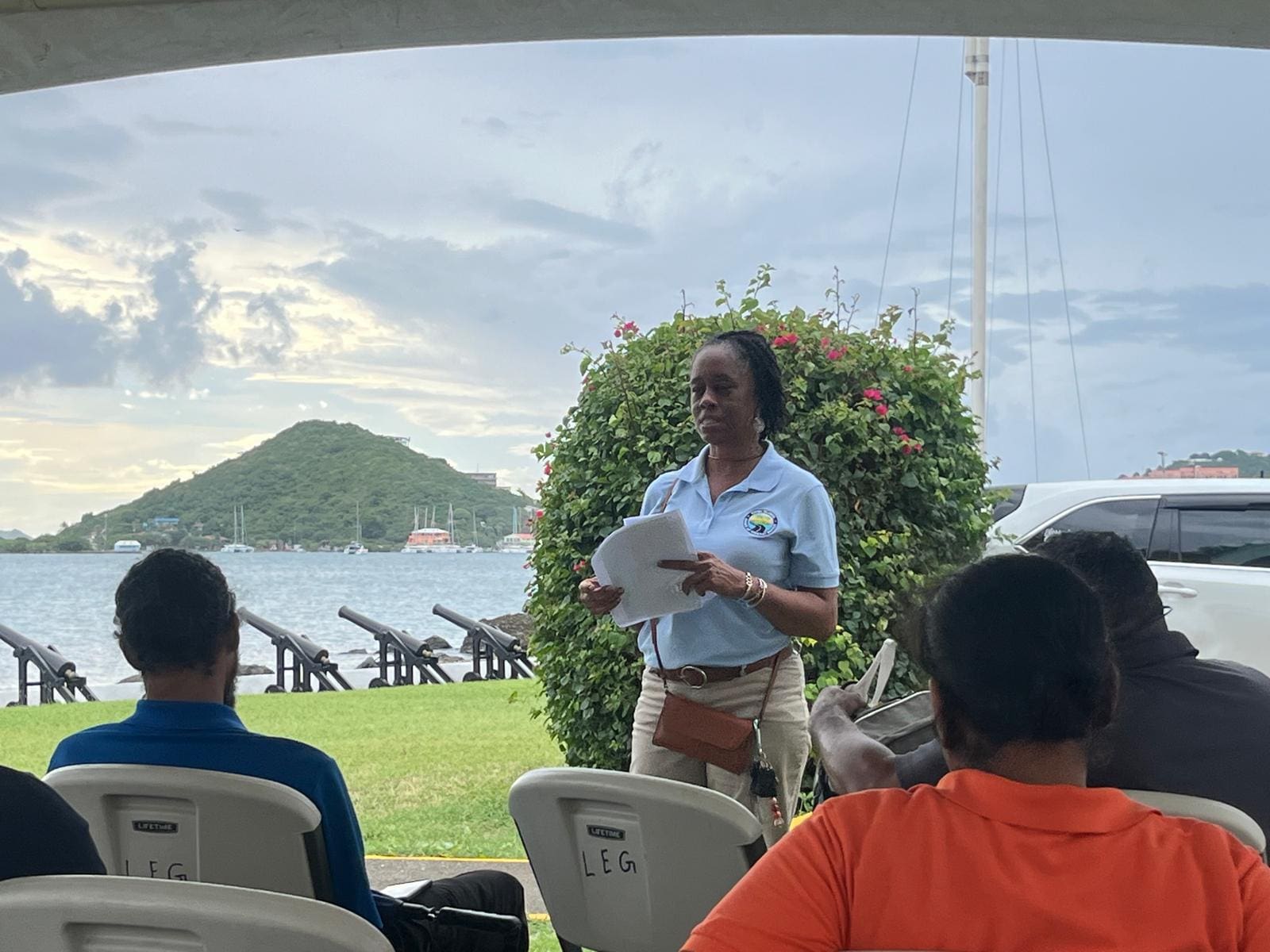
Some of the issues highlighted from the participants after the safety assessment included nonexistent or faded sidewalks and signs, portions of walkways that are blocked off or impeded by parked vehicles, freight trucks not observing red lights, flooded and muddied pathways, short intervals of crossing lights, and challenges with ADA compliance. Speeding was also addressed as one of the concerns by participants, where legally, motorists should be driving 20 miles per hour on Veterans Drive. However, it was noted that there is no posted sign indicating the speed limit.
“If it looks like a highway, people will drive on it like a highway,” said Julien Henley, Territorial Americans with Disabilities Act coordinator. He hinted that aesthetic changes can stymie motorists from speeding on certain roads. He also noted as concerns to the attendees that there are bus stops without curb cuts for persons in wheelchairs and areas where there are curb cuts on one side of the street but no curb cuts on the adjacent side.
According to VIOHS, over the past three years, nine pedestrians lost their lives and 152 were injured in motor vehicle crashes in the territory. In the St. Thomas-St. John district, 143 pedestrians were involved in motor vehicle crashes. Five pedestrians were killed and 118 were injured in the district. In fiscal year 2023, there were seven pedestrian-vehicle crashes on Veterans Drive. Additionally, the office found that males over 51 years of age are more likely to be involved in motor vehicle crashes than pedestrians.
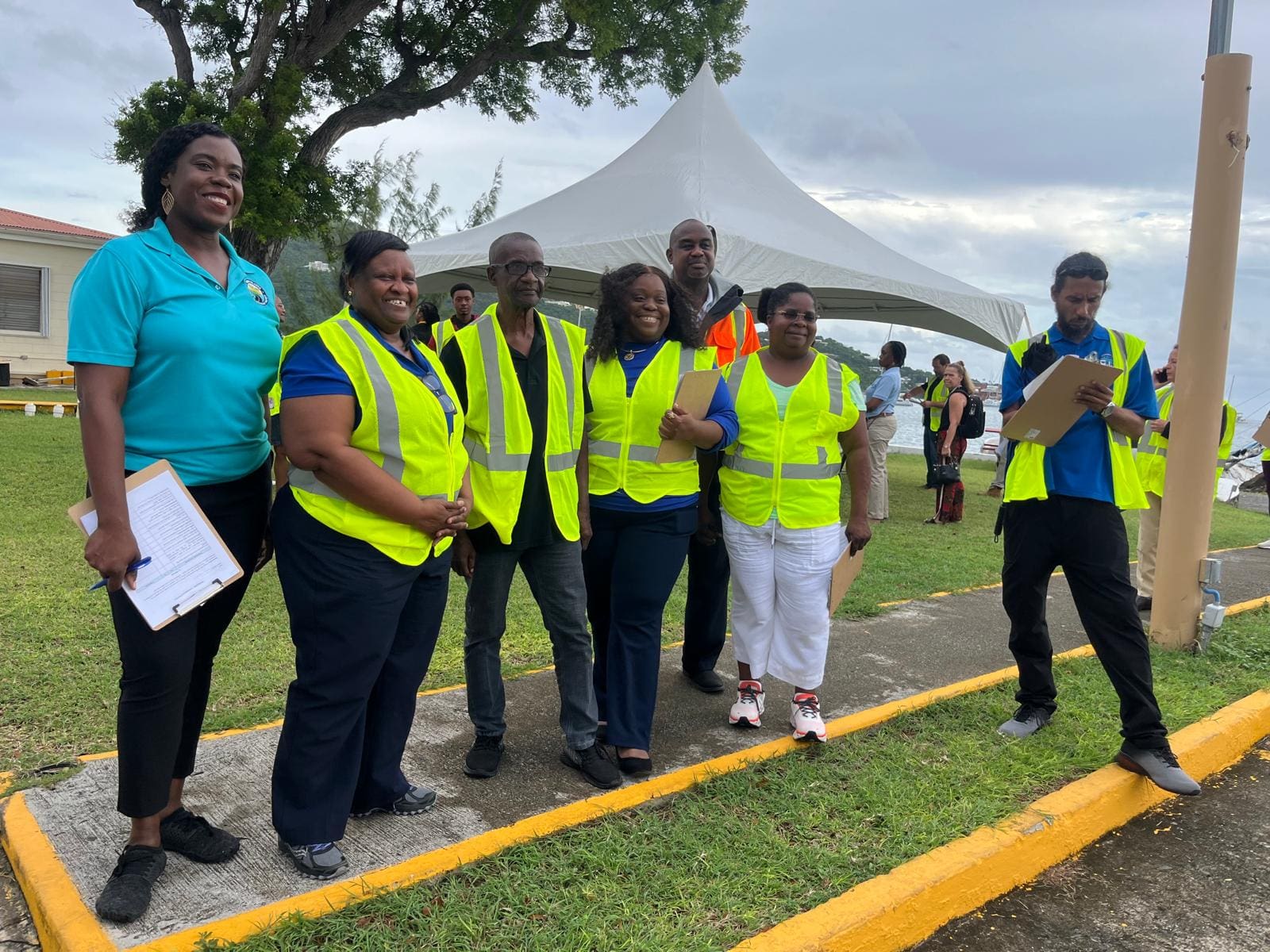
Shannon Hughes, a Region 2 member of Safety Programs from the National Highway Traffic Safety Administration, said that “walking is a right.” She added that “pedestrian safety since the onslaught of the pandemic has become a very big issue and it’s not just in the big cities anymore. It’s a matter of roadways that have not been properly lit. Infrastructure that is not properly in place. Drivers that are taking incredibly unnecessary risks.”
Members from VIOHS provided an assessment checklist for the participating groups to fill out and thanked participants for their sincere feedback at the end of the assessment. The office will conduct a second walking safety assessment on Wednesday morning between 7 a.m. and 10 a.m. to observe morning traffic for pedestrians, bicyclists, and motorists. Through combined perspectives, the Office of Highway Safety hopes to make the St. Thomas Waterfront a safer roadway for all and create a model that can be implemented territory-wide.


